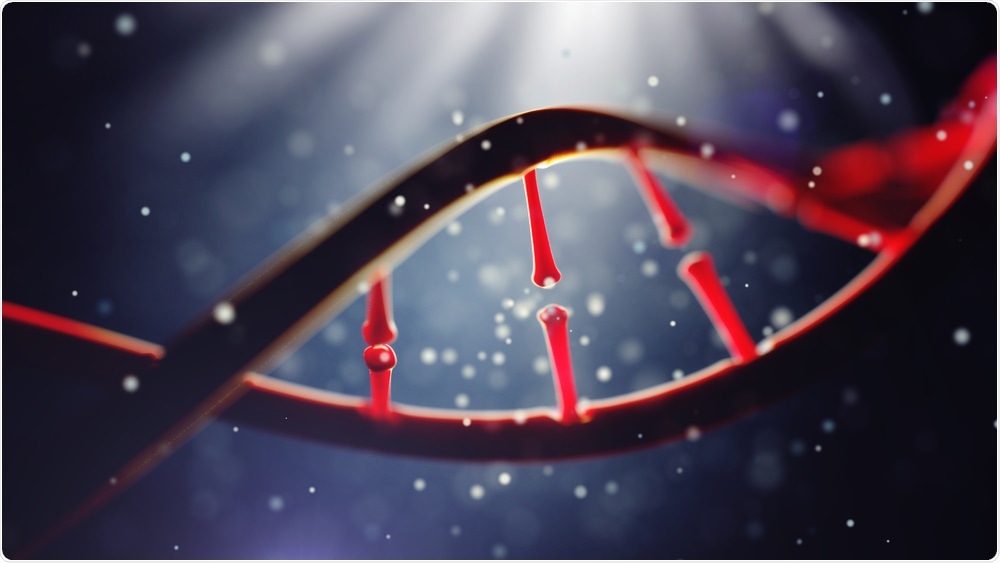A vast new study including almost half a million people has concluded that no single gene is associated with same-sex behavior. Instead, it found that homosexual behavior is influenced by various different genetic variants, with each of those only having a tiny effect.
Study author Benjamin Neale from the Broad Institute and colleagues say the situation is similar to what happens with height, where many different genetic and environmental factors play a role.

Egorov Artem | Shutterstock
The study, which is the largest yet to look at genetics and same-sex behavior, drew on genomic data collected on around 409,000 individuals as part of the UK Biobank project and 68,500 people registered with the genetics company 23andMe. The researchers did not look at orientation or identity, nor did they include transgender people.
Nature versus nurture
As reported in the journal Science, Neale and team found that about 4% of men and nearly 3% of women said they had at some point in their lives had a same-sex sexual experience.
On assessing sexual behavior and asking people about their partner's, the team did find some genetic variants that were associated with same-sex relationships. However, these genetic factors only accounted for 25% of the behaviors at the most.
Co-author Brendan Zietsch (University of Queensland, Australia) says the findings do not mean that the rest of the behaviors can be accounted for by culture or upbringing. “For example, it is thought that non-genetic factors before birth, such as the hormonal environment in the womb, also play an important role,” he says.
Advocacy group GLAAD says the research confirms that there is no conclusive degree to which nature or nurture influences how a gay or lesbian person behaves.
The genetic variants that were found
Neale and team found five genetic variants that were linked to same-sex behavior. Two of the variants occurred in both men and women, two were found only among men and one was only found among women. The team thinks one of the variants that was only found among men and was associated with male-pattern balding may be involved in sex hormone regulation.
However, even when the five variants were taken together, they could only explain less than 1% of the variation. This suggests that many other factors are involved, with each only contributing a tiny amount.
It is impossible to predict sexual orientation based on genetics
Neale says the scale of the influence of non-genetic factors, the complexity of sexual behavior and the challenges involved in accurately measuring how much effect a genetic variant has, makes it impossible to use genetic data to predict whether a person would have same-sex partners.
The study suggests there is an overlap between genetic predisposition towards same-sex behavior and factors such as whether a person is open to experience or has a mental health issue.
“One possibility is that stigma associated with same-sex sexual behavior causes or exacerbates mental health issues. This could create a genetic correlation,” said Brendan Zeitsch, senior author of the paper.
The authors also say the results call into question the notion that sexuality exists on a single continuum.
[There] seem to be genes associated with opposite-sex attraction and other genes associated with same-sex attraction, and these are not related. These results suggest we shouldn’t be measuring sexual preference on a single continuum from straight to gay, but rather two separate dimensions: attraction to the same sex and attraction to the opposite sex.
Brendan Zeitsch, Senior Author
The “gay gene” theory
The idea that genes influence whether a person is attracted to someone of the same sex became a hot topic in 1993, when researchers from the US National Cancer Institute reported associations between DNA markers on the X chromosome and male sexual orientation. The finding led to what became known of as the “gay gene.”
Since then, findings have been inconsistent, although some of the latest research has supported the theory that genetics influences sexual orientation.
Sexual orientation expert, Qazi Rahman from King’s College London, welcomes the findings but pointed out that the databases used only captured information from a small proportion of people who were invited to participate. That would mean that the genetic variants found might reflect another trait that is specific to those who chose to respond.
Rahman also says he is not surprised that the variants identified only exerted small effects. He points out that since same-sex behavior is associated with having fewer children, evolution is likely to hide such variants in effects.
Neale and team say the current study provides further evidence that diverse sexual behavior is a natural part of overall human variation.
Senior scientist at 23andMe, Fah Sathirapongsasuti, agrees:
This is a natural and normal part of the variation in our species. That should also support precisely the position that we shouldn't try and develop gay 'curism'. That's not in anyone's interest."
Further Reading
Journal reference:
Ganna, A., et al. (2019). Large-scale GWAS reveals insights into the genetic architecture of same-sex sexual behavior. Science. https://science.sciencemag.org/content/365/6456/eaat7693